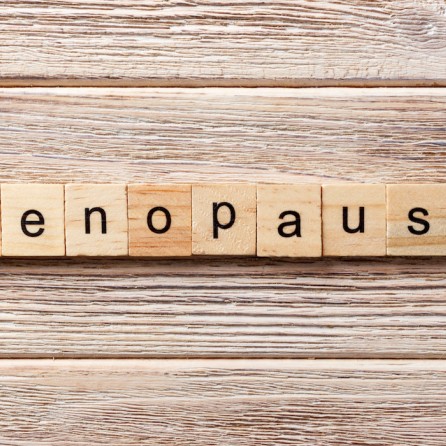
To acknowledge World Menopause month, Helen shares her personal experience and looks to grow the conversation around this topic.
The process of ageing is complicated for anyone living with MS. For women, these complexities are compounded by the equation of female health and beauty with visual stereotypes of young, pre-menopausal bodies. The combination of ageism and misogyny runs deep in western culture – and medicine.
Twelve years ago, I was frustrated, but not really surprised, when my neurologist was unwilling to explore the messy collision between the onset of the menopause and my symptoms of progressive MS. Was my weight gain, heat sensitivity and increased fatigue due to the menopause … or MS … or both? For me (and for many women with MS), the physical experience of the menopause was difficult to disentangle from my everyday symptoms of MS. Determining cause and effect was even more so.
In response to my questions, my neurologist muttered something about Hormone Replacement Therapy (HRT) and left it at that. I had heard that high levels of oestrogen (the female hormone that fluctuates and decreases during the menopause) may have a powerful anti-inflammatory effect on the immune system. But the course of my Primary Progressive MS was not characterised by inflammatory lesions and relapses, so this seemed less relevant to me personally.
However, I was less aware of the neuro-protective and anti-degenerative effects of oestrogen. Perhaps I should have been. But based on my understanding of the possible benefits and risks of HRT at the time, I felt that it wasn’t for me. Would HRT have slowed the subsequent progression of my MS? Maybe… but it’s impossible to say.
Dr Jonathan White sets out the issues for women with MS and their options for managing the menopause in this expert blog. He also raises the question whether it’s advisable to take HRT for its potential benefit in counteracting MS, as opposed to treating specific symptoms of the menopause. For many women, these benefits may go hand in hand.
Personally, I felt that the menopause was a normal ageing process and preferred to manage it without pharmacological intervention, if I possibly could. I was already committed to a holistic approach to managing my MS, which did not exclude, but also did not rely on, conventional medicine. Could dietary supplements, controlled breathing, fatigue management and exercise help me now?
Looking back, I realise that my experience of the menopause almost coincided with the publication of Professor George Jelinek’s book Overcoming Multiple Sclerosis (2010) and my discovery of the OMS programme. Here was a joined-up, evidence based programme that vindicated and clarified my holistic philosophy. For any woman with MS, it’s encouraging to note that the OMS protocols on vitamin D, diet, exercise and stress reduction all coincide with public health advice on managing the menopause, whether or not you choose HRT too.
During the next couple of years, I took my herbal remedies and my vitamin D. My body slowed down, but I muddled through.
Recently, the interaction between menopause and MS has been the subject of a number of research trials, which you can read about more here. However, as Dr White points out, research findings to date are not clear cut. If some women experience fewer relapses post menopause, is this because their MS has shifted to a progressive pattern? Is increased disease progression in post-menopausal women different from similar disease progression in ageing men? Can we measure the impact of lifestyle practices (such as having a good level of vitamin D or smoking) on both positive and negative outcomes?
Over the past decade, the public conversation about the menopause has amplified enormously – for all women and, increasingly, for women with MS. This in itself is a positive and powerful change. To suffer in silence is to suffer twice over. Greater attention in the general media, as well as in MS resources such as the OMS website, can give us the confidence and language to start an informed discussion about the menopause with our doctors, our families and with each other.
I have written this from an entirely personal perspective and without any medical expertise, not because I have any answers, but because I still have many questions. That’s not a bad starting point for a conversation.